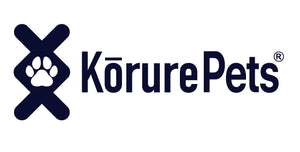The Best Omega-3 for Pets: Understanding the Source

Omega-3 fatty acids are essential for your pet’s health, supporting everything from joint mobility, brain health and heart health to skin and coat condition. But not all Omega-3 sources are created equal. The type and quality of Omega-3 you provide can make a significant difference in your pet’s well-being.
Why Omega-3 Matters for Pets
Omega-3 fatty acids are primarily found in marine-based sources and play a crucial role in reducing inflammation, enhancing cognitive function, and improving overall health. The most beneficial forms for pets are EPA (eicosapentaenoic acid) and DHA (docosahexaenoic acid), which are readily absorbed and utilised by their bodies. These essential fatty acids help:
- Support joint and muscle health, especially in aging pets
- Improve cognitive function and brain development
- Enhance skin and coat condition
- Strengthen the immune system
- Promote cardiovascular health
Is Fish Oil Really the Best Choice?
Fish oil has long been a common source of Omega-3 for pets, but it comes with several downsides:
Sustainability Concerns – Overfishing is a significant environmental issue, and many fish oil sources contribute to depletion of marine ecosystems.
Oxidation Issues – Fish oil oxidizes quickly, reducing its effectiveness and potentially harming your pet’s health.
Limited Nutrient Profile –While fish oil provides EPA and DHA, it lacks some of the additional beneficial compounds found in other marine sources.
Inconsistency Concerns – Fish oil is typically derived from a mix of various fish caught in nets, leading to fluctuations in both quality and nutritional composition. This variability can impact the effectiveness and reliability of the Omega-3 content.
More Sustainable and Effective Omega-3 Alternatives
There are several superior, more sustainable sources of Omega-3 that offer greater benefits for your pet:
Sourced from the pristine waters of New Zealand, green-lipped mussels contain a unique combination of Omega-3 fatty acids, including rare compounds not found in fish oil. These fatty acids help reduce inflammation and improve joint mobility, making them an excellent choice for pets with arthritis or mobility issues.
Algae oil is one of the most sustainable sources of Omega-3. Unlike fish oil, which comes from fish that consume algae, this oil is derived directly from the original source. Algae oil provides a high concentration of DHA, which is crucial for brain function, vision, and skin and coat health.
Salmon roe is a nutrient-dense alternative to fish oil, offering a high-quality protein source along with Omega-3 and Vitamin D. It supports cardiovascular health, enhances brain function, and promotes a shiny coat
Choosing the Right Omega-3 for Your Pet
When selecting an Omega-3 supplement, consider your pet’s dietary needs, allergies, and overall health goals. By choosing sustainable and nutrient-rich alternatives like green-lipped mussels, algae oil, and salmon roe, you can ensure your pet receives the best possible benefits without harming the environment.
Providing the right Omega-3 source can make all the difference in your pet’s long-term health and happiness. Make the switch to a more effective and sustainable option today!

